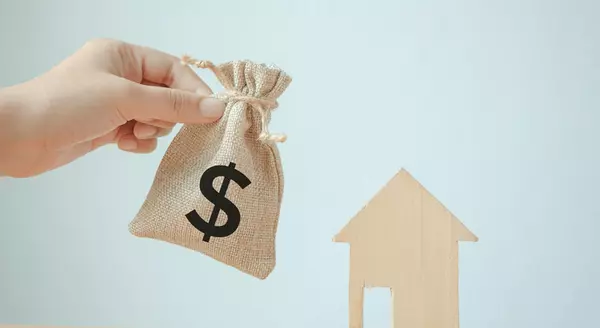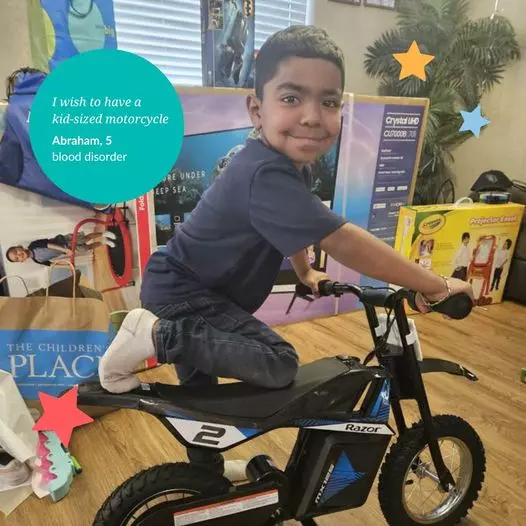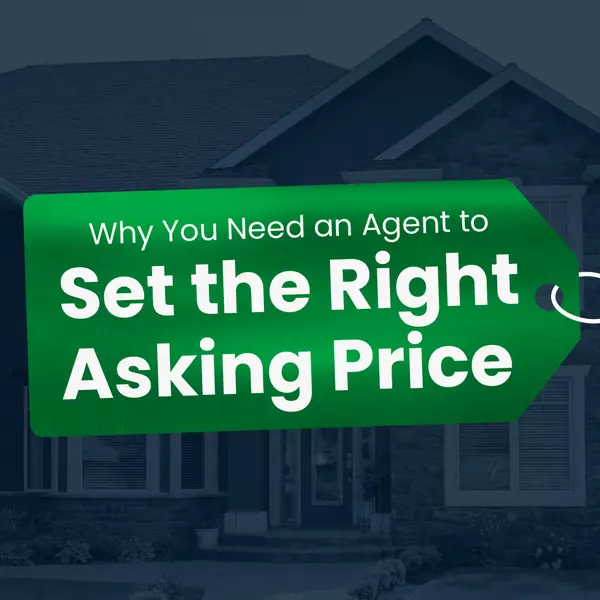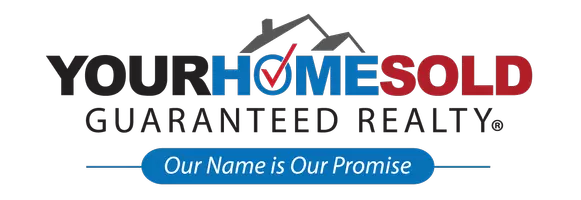

The Benefits of Using Your Equity To Make a Bigger Down Payment
Did you know? Homeowners are often able to put more money down when they buy their next home. That’s because, once they sell, they can use the equity they have in their current house toward their next down payment. And it’s why as home equity reaches a new height, the median down payment has too. According to the latest data from Redfin, the typical down payment for U.S. homebuyers is $67,500—that’s nearly 15% more than last year, and the highest on record (see graph below): Here’s why equity makes this possible. Over the past five years, home prices have increased significantly, which has led to a big boost in equity for current homeowners like you. When you sell your house and move, you can take the equity that gives you and apply it toward a larger down payment on your new home. That’s a major opportunity, especially if you’ve had concerns about affordability. Now, it’s important to remember you don’t have to make a big down payment to buy your next home—there are loan programs that let you put as little as 3%, or even 0% down. But there’s a reason so many current homeowners are opting to put more money down. That’s because it comes with some serious perks. Why a Bigger Down Payment Can Be a Game Changer 1. You’ll Borrow Less and Save More in the Long Run When you use your equity to make a bigger down payment on your next home, you won’t have to borrow as much. And the less you borrow, the less you’ll pay in interest over the life of your loan. That’s money saved in your pocket for years to come. 2. You Could Get a Lower Mortgage Rate Providing a larger down payment shows your lender you’re more financially stable and not a large credit risk. The more confident your lender is in your credit score and your ability to pay your loan, the lower the mortgage rate they’ll likely be willing to give you. And that amplifies your savings. 3. Your Monthly Payments Could Be Lower A bigger down payment doesn’t just help you reduce how much you have to borrow—it also means your monthly mortgage payment may be smaller. That can make your next home more affordable and give you a bit more breathing room in your budget. 4. You Can Skip Private Mortgage Insurance (PMI) If you can put down 20% or more, you can avoid Private Mortgage Insurance (PMI), which is an added cost many buyers have to pay if their down payment isn’t as large. Freddie Mac explains it like this: “For homeowners who put less than 20% down, Private Mortgage Insurance or PMI is an added insurance policy for homeowners that protects the lender if you are unable to pay your mortgage. It is not the same thing as homeowner's insurance. It's a monthly fee, rolled into your mortgage payment, that’s required if you make a down payment less than 20%.” Avoiding PMI means you’ll have one less expense to worry about each month, which is a nice bonus. Bottom Line Down payments are at a record high, largely because recent equity gains are putting homeowners in a position to put more money down. If you’re thinking about selling your current house and moving, let’s work together to figure out how much home equity you have right now, and how it can boost your buying power in today’s market.
Read More

Abraham's Wish is to Have a Kid-Sized Motorcycle
Diagnosed with a blood disorder, his days were often filled with frequent doctor visits, sometimes two to three times a week. After a bone marrow transplant, his condition left him feeling weak and unable to enjoy the simple joys of childhood, like playing outside or participating in P.E. class at school. During one of his numerous doctor visits, a social worker referred Abraham and his family to Make-A-Wish Arizona. At that time, they knew very little about the organization, but Abraham had a clear vision for his wish - a kid-sized motorcycle with a flag! “I remember the pure delight in his eyes when he heard about his wish coming true,” said his mother, Brenda. “I was not surprised by his wish, Abraham wants to be a police officer when he grows up, specifically the one that gets to drive motorcycles because he wants to chase bad guys.” His parents were eager to see his wish come to life and the anticipation built up to a beautiful day when Abraham's wish was granted. Abraham went on a shopping spree, picking out his mini motorcycle and other toys, and the experience was nothing short of magical. Seeing Abraham's joy brought an overwhelming sense of relief and happiness to his parents, who noticed an immediate change in him. It was as if Abraham came alive again, rediscovering the vibrant world around him. “He used to be so weak from all the treatments and he wouldn’t do anything, and now he’s so active and so different than before,” said Brenda. “I get to ride my motorcycle every day!” said Abraham. Today, Abraham continues to get stronger. He has returned to school and his wish is more than just a special memory. It is a reminder of the beautiful moments that can arise even in the toughest times. ***********************************************************We are on a mission to raise $10,000 for Make-A- Wish Foundation ARIZONA, so for every house we sell this year we are donating a portion of our income to them. As you know Make-A-Wish Foundation does create life changing wishes for Arizona children with critical illnesses. The children we serve are fighting for their lives, and their families are doing everything that they can to help them in their battles. Last year they served thousands of children around Arizona. Chances are your family or someone you know has benefitted from the great work they do. Who do you know considering buying or selling a home you could refer to our real estate sales team? Not only will they benefit from our award- winning real estate service, a very worthy cause will benefit as well. I want to make it easy to refer your friends, neighbors, associates or family member.You can go to our website and enter their contact info online or forward the link to who you know considering a move. Of course you can always call me direct as well. Thank you so much for the referral!. "I Make Dreams A Reality In Realty"
Read More

How Much Does It Cost To Sell My House?
If you’re toying with the idea of selling your house, you’re probably wondering how much it’ll cost. To be honest, the final number will depend on several factors like the offer you accept, if you help with your buyer’s closing costs, how many repairs you tackle, and more. So, to give you a ballpark of what to expect, here’s some information on a few of the expenses you’ll want to be ready for (see graph below): But here’s something that puts those costs into perspective. Most homeowners today have a substantial amount of equity built up in their homes, and that means they stand to make significant gains when they sell. Chances are, you do too. This can help quickly recoup these selling costs. You may even have enough equity leftover to put some toward your next home purchase too. Let’s dive into a few of the costs from the graph above, so you have a bit more context on what they include and where you may be able to save some money, when it makes sense. Closing Costs and Commission These are the fees you’ll pay at the closing table to cover various aspects of the sale. You’ll have your own closing costs and you may even offer to pay some of the buyer’s as a concession. As U.S. News Real Estate explains: “Closing costs are fees that are paid to finalize the transaction and transfer ownership of the home to the buyer . . . Sellers can expect to pay 2% to 4% of the sale price of the home in fees and taxes on top of the agent commission. Based on the national median home sale price, this means that closing costs in 2023 for sellers are about $7,740 to $15,480. . .” Taxes are going to vary by state and agent commissions depend on what you agree upon upfront. And keep in mind, that the numbers in the chart above are just an example, not exact figures. Not to mention, if you put money toward things like your property taxes, mortgage escrow, etc. as part of your current mortgage payments – there's a chance you’ll get a credit back at closing that can help offset some of these selling expenses. Pre-Listing Inspection and Repairs One optional step some sellers take is having a pre-listing inspection. It gives you an idea of what may pop up later on in the buyer’s inspection – because those are the items a buyer may ask you to toss in a credit (or concession) to cover later on. This allows you to get a jump on any repairs and tackle them before you list, so your house is set up to impress from the start. Again, if you want to skip this step, an agent can help. They’ll be able to give you advice on things like paint colors, small cosmetic repairs, what buyers are looking for, and whether it’s worth tackling anything else ahead of time. This will help make sure you’re spending money on things that are most likely to net you a solid return on your investment. Home Staging As inventory grows, you may want to take a few extra steps to make sure your house stands out. Staging is an optional way to make sure your house shows well. It can include bringing in rental furniture if the house is vacant or art to warm up the walls. Some staging can even be done virtually once the photos are taken. But, in general, how much does it cost? According to Bankrate: “Home sellers typically pay somewhere between $782 and $2,817 in home staging costs . . . but the price tag can vary widely.” If you want to skip this step, you could opt to lean on your agent’s advice for what looks good and what may feel cluttered. A great agent will suggest things like removing a chair to open up the flow of a room, laying down a rug to add warmth to a space, or taking down photographs to de-personalize strategic areas. Why Leaning on an Agent Is Key If you’re looking to cut down on your costs, you have options. But be careful of where you trim. You may be able to skip staging or a pre-listing inspection since those are optional, but you don’t want to skimp and sell without a pro. An agent is your go-to expert throughout the transaction. They’ll offer customized advice every step of the way, including how to stage the house and what repairs to tackle. This can help you avoid hiring an outside stager or having to pay for a pre-listing inspection. But that’s not the only way your agent adds value. They’ll also create tailored marketing and pricing strategies that’ll highlight the house’s best assets and any work you did to get the home show ready. And that can actually help your house sell for more in the long run. Bottom Line Want a better picture of what you should expect when you sell your house? Let’s have a conversation and walk through it together.
Read More
Categories
Recent Posts











